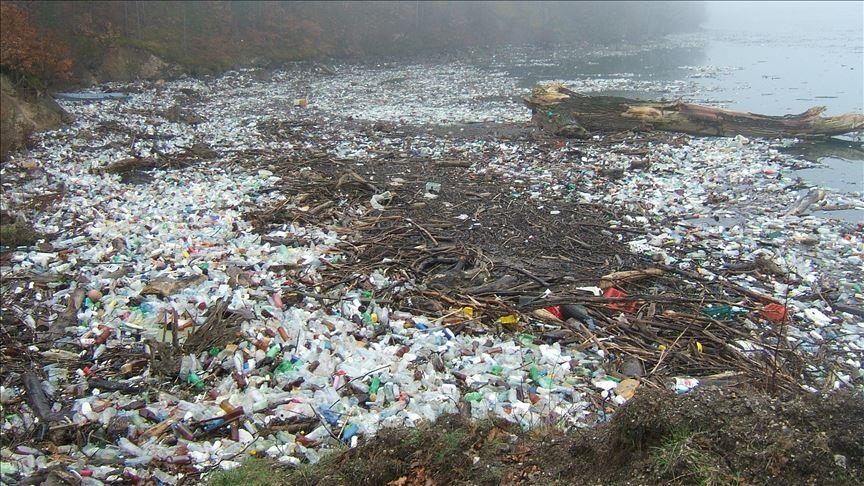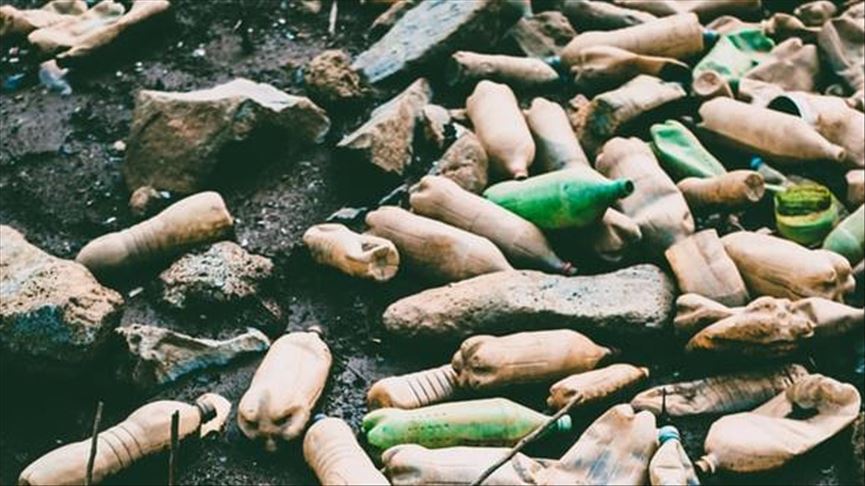Plastic waste's poisonous journey through food chain
Exposure to toxins can lead to various health issues such as cardiovascular disease, cancer, porphyria, says expert

ANKARA
Toxic chemicals in plastic waste are poisoning people by seeping into poultry eggs contaminated with hazardous dioxin chemicals, according to a recent study.
According to a report published last week and jointly conducted by Arnika, a Czech environmental non-governmental organization (NGO), and the International Pollutants Elimination Network (IPEN), a global network of environmental and public health organizations working for a toxics-free future, various toxic chemicals were found in free-range chicken eggs in the vicinity of plastic waste disposal sites and facilities.
Eggs, collected by NGOs in 14 countries -- the Czech Republic, Belarus, Cameroon, Gabon, Ghana, China, Indonesia, Kazakhstan, Kenya, Mexico, Philippines, Tanzania, Thailand and Uruguay -- were analyzed for dioxin contamination. Dioxins are highly toxic byproducts of open burning, crude recycling, chemical production and incineration technologies.
Following the process, it was discovered that even small amounts of these plastic chemical additives and byproduct emissions found in eggs can cause damage to the immune and reproductive systems, cancers, impaired intellectual functions and/or developmental delays.
Speaking to Anadolu Agency, Jindrich Petrlik, executive director of the toxics and waste program at the Arnika and one of the co-authors of the report, said dioxins are slow and silent killers as their effects on human health at levels found in eggs can be visible after years of eating such contaminated eggs.
"It can be cardiovascular disease, diabetes, cancer, porphyria, endometriosis, early menopause, alteration of testosterone and thyroid hormones and altered immune system response, among others," he noted.
In addition, Petrlik said exposure to toxins can also result in birth defects and stillbirths
Other ways of contamination
In response to a question on other ways of plastic waste-related dioxin contamination in the food chain, he said it can affect any animals foraging at places contaminated with dioxins and other persistent organic pollutants.
Giving an example of this, he pointed out that contamination is also carried out from the soil to cows and then milk.

While noting that differences in climate conditions generally do not affect the contamination, Petrlik said the transfer of toxic chemicals can more widely occur in a warm climate.
"The difference is only regarding the fate and transfer of toxic chemicals in the environment [between soil and air, for example]. But dioxins are quite stable, while polychlorinated biphenyls are more volatile. So we can expect their transfer to be on a broader scale in a warm climate," he added.
Stressing that if toxic substances keep contaminating essential nutrients, it would lead to the damaged health of the larger human population, Petrlik suggested that there should be common standards and stricter rules globally towards wastes such as dioxins or brominated flame retardant content in waste.
"What is strange is that for example, the European Food Safety Authority sets stricter limits for dioxin intake via food while the other EU agencies and mainly politicians from member states promote very weak limits for dioxins in waste, which leads to lost control over the movement of large volumes of dioxins which contaminate the food chain in the end," he noted.
'Future generations might be poisoned'
Reiterating the risks posed by dioxin, Sedat Gundogdu, an expert on plastic waste, highlighted that dioxin has the potential to enter the food chain, especially through agricultural production, by contaminating the soil and then into the surface water and groundwater.
"In addition, if there is agricultural production or human settlement near the areas where dioxin occurs, it can participate in the food chain both with the products produced and through human and other living things through respiration," said Gundogdu, who is also a lecturer at Cukurova University in Adana, southern Turkey.
Pointing out that these pollutants are found even in polar creatures, he highlighted that the pollutants included in the system from one place can be transported to the farthest point of the world since the ecosystems are interconnected.
Touching on the negative impacts of toxic chemicals in the food chain on people, which could even lead to deaths, Gundogdu mentioned that the global south faces serious environmental and health problems as the transfer of waste mostly occurs from developed countries to least developed countries.
Chemical pollution is a form of pollution that has a cumulative feature, he said, highlighting that these pollutants, which are impossible to collect and remove, will poison even future generations in the long run.
"If this continues, the situation that will emerge will not be sustainable and livable," he warned.


